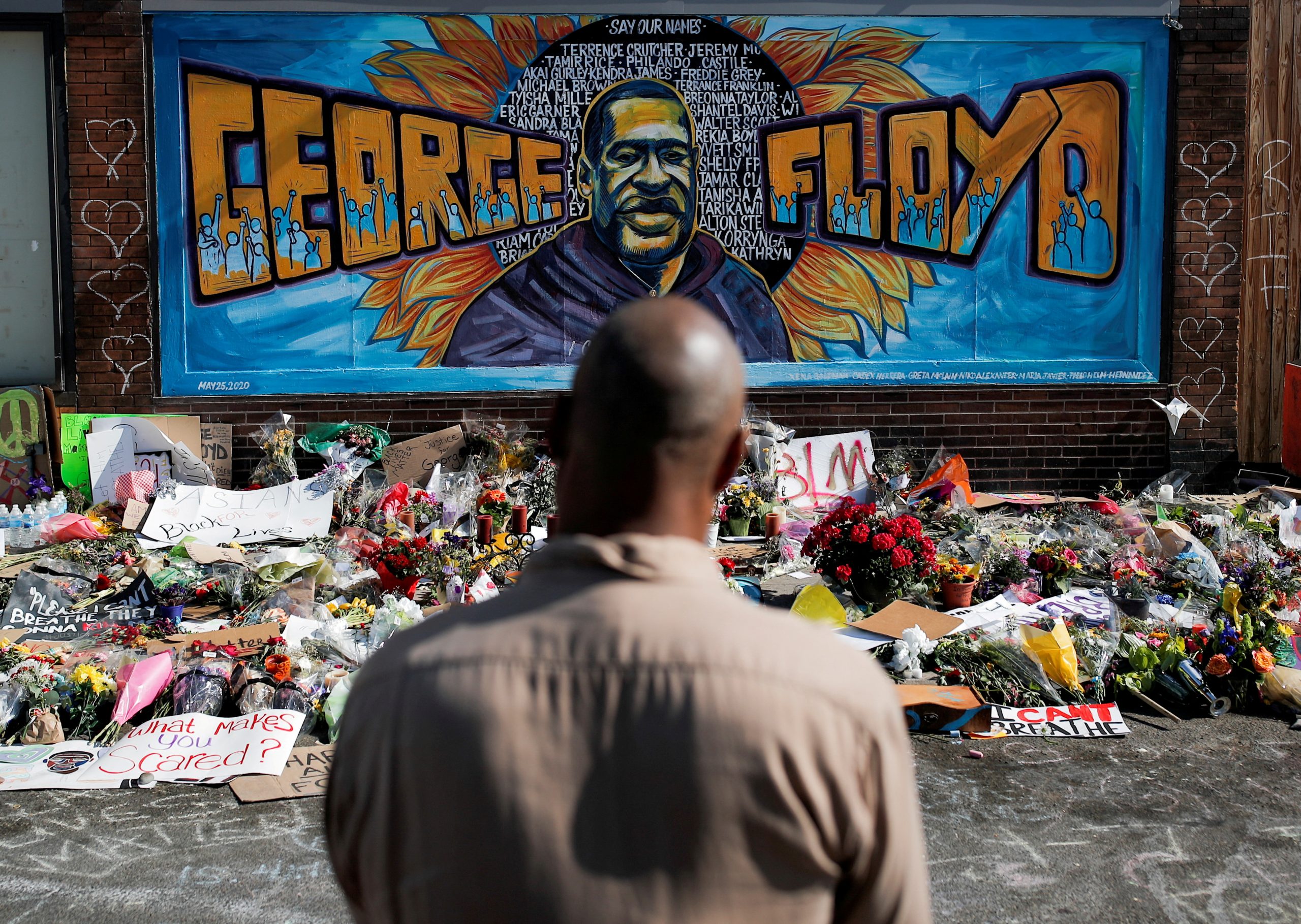
Chris Lange, FISM News
[elfsight_social_share_buttons id=”1″]
A Minnesota federal trial jury on Wednesday began deliberations in the case against three former Minneapolis police officers charged with violating the civil rights of George Floyd in connection to his May 2020 arrest and death that sparked anti-police riots across the nation.
The deliberations follow nearly a month’s worth of arguments and testimony surrounding the behavior of former Officers J. Alexander Kueng, Thomas Lane, and Tou Thao during the May 25, 2020, arrest and death of Floyd, a 46-year-old black man.
Floyd was apprehended outside a Minneapolis convenience store on suspicion he tried to use a counterfeit $20 bill to purchase cigarettes. He became agitated and resistant as officers attempted to place him into a police car, after which ex-officer Derek Chauvin, who is white, pressed his knee into Floyd’s neck for 9 ½ minutes while Floyd said he couldn’t breathe and pleaded with Chauvin to stop before losing consciousness. He was pronounced dead shortly thereafter. The events were captured on bystander video.
The trio are accused of depriving Floyd of his civil rights when they failed to intervene to prevent his death. All three have pleaded not guilty to the charges and are being tried together.
Kueng, Lane, and Thao each took the stand in their defense during the trial as prosecutors made their case to the all-white jury that the officers “chose to do nothing” to help Floyd, including their failure to administer CPR to the dying man, according to Reuters. The defense countered that the Minneapolis Police Department provided inadequate training and that the three deferred to Chauvin’s status as the senior officer at the scene.
Lane’s attorney, Earl Gray, said his client exhibited concern for Floyd and suggested positioning him on his side so he could breathe but was twice rebuffed by Chauvin. Gray also said Lane attempted to revive Floyd upon the arrival of an ambulance on the scene, adding that “any reasonable person should just be disgusted, should be infuriated” that Lane was charged.
Kueng’s attorney, Thomas Plunkett, told jurors that his client looked up to Chauvin, who was his former field training officer, and “relied on this person’s experience.” Plunkett said police did not receive adequate instruction on their responsibility to intervene.
“I’m not trying to say he wasn’t trained,” Plunkett said. “I’m saying the training was inadequate to help him see, perceive and understand what was happening here.”
Thao’s attorney, Robert Paule, said his client believed the officers were doing what was best for Floyd by holding him until paramedics arrived.
The charges against the three ex-officers include language that they “willfully” deprived Floyd of his constitutional rights. Paule said that means jurors must find that officers acted “with a bad purpose or improper motive to disobey or disregard the law.” He noted that Thao expressed urgency that an ambulance should be called for Floyd, an action Paule said was clearly “not for a bad purpose.” He also stated that Thao reasonably believed Floyd was on drugs and needed to be restrained until medical assistance arrived.
Prosecutor Manda Sertich said the prosecutorial burden is to simply prove that the officers knew the force Chauvin was using was unreasonable and that they had a duty to stop it but chose not to. On the charge that Floyd was denied medical care, Sertich said the fact that the officers failed to intervene despite knowing that Floyd was in distress is proof of willfulness, pointing to the span of two-and-a-half “precious minutes” between the time Floyd became unresponsive and the arrival of paramedics.
“They chose to do nothing, and their choice resulted in Mr. Floyd’s death,” she said.
Death resulting from federal civil rights violations are punishable by up to life in prison or even death; however, federal sentencing guidelines suggest the officers would get much less if convicted.
Lane, Kueng, and Thao each face a separate trial in June on charges that they aided and abetted murder and manslaughter.
Chauvin pleaded in the federal case in December, months after he was convicted of state murder and manslaughter charges.
